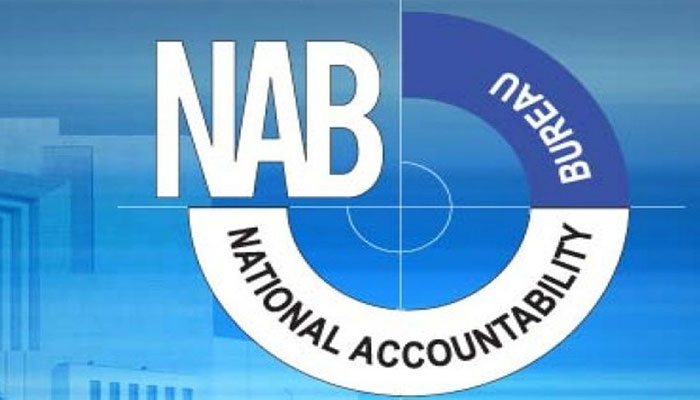NAB okays inquiries in Billion Tree Tsunami, sugar subsidy scandal
ISLAMABAD: The Executive Board of the National Accountability Bureau (NAB) Wednesday approved separate multiple inquiries and investigations in Billion Tree Tsunami Project of Khyber Pakhtunkhwa.
The NAB’s Executive Board approved four separate investigation and six separate inquiries in Billion Tsunami Tree Project of Khyber Pakhtunkhwa. The Executive Board also approved holding of inquiry against the Sugar Mills in Sugar Subsidy Scandal of over Rs29 billion.
The board held its meeting on Wednesday with the chair of its Chairman Justice (R) Javed Iqbal and was attended by NAB deputy chairman, prosecutor general accountability, director general operations NAB, Rawalpindi, DG Rawalpindi while DG NAB Khyber Pakhtunkhwa, DG NAB, Sukkur and DG NAB, Karachi attended the meeting through video link besides senior officers also attended the meeting.
The board authorised filing of a corruption reference against Asim Murtaza Khan, former director/chief executive officer/member Board of Directors, Pakistan Petroleum Limited (PPL) and others. The accused has allegedly been awarded oil and gas contracts to M/s Moranoftodo, which caused heavy losses to national exchequer.
The NAB’s Executive Board meeting authorised conducting of seven investigations including four separate investigations in Billion Tree Tsunami Project, Khyber Pakhtunkhwa, investigation against management of Almsa Model Town and Professor Model Town and others, investigations against officers/officials, others of the Text Book Board, Khyber Pakhtunkhwa, investigations against Mirza Khan Soherani, officers/officials of Education Department and literacy department, Government of Sindh.
The NAB’s Executive Board approved 12 inquiries including six separate inquiries against Billion Tree Tsunami Project, Khyber Pakhtunkhwa, management and others of Sugar Mills insugar subsidy scandal, inquiries against Abdul Raheem Khan, Zahoor Ahmed, Azmat Ali Shah, Hamza Khan, Arash ur Rehman, Additional Controller, Abdul Wali Khan University, Mardan and others, officers/officials of Bannu Sugar Mills Limited, Archaeology Department, Khyber Pakhtunkhwa, Sardar Khan Chandio, member Provincial Assembly, Burhan Khan Chandio, Member Provincial Assembly, Officers/officials and others of Revenue Department.
The board has closed inquiries against former member provincial assembly Qaiser Wali Khan, officers/officials and others of Pak PWD, officers/officials of LGE and RDD,TMA Town, officers/officials, others of Gomal University, Dera Ismael Khan, former district Nazim Peshawar and others, officers/officials of local government department , Khyber Pakhtunkhwa, Dilawar Hussain Memon, CEO, SEPCO, Sukkur, Nazir Soomro, CTO, Sukkur and others owing to absence of evidence as per law.
The NAB’s Executive Board accorded approval to close the investigations against Sarir Muhammad, former DGPDA, Muhammad Tariq, former general manager, PDA, Abdul Haleem Paracha, former director PDA, Mirza Khan, Housing Officer PDA and others due to absence of evidence in accordance with law.
Speaking at the meeting, Justice (R) Javed Iqbal said that NAB is utilising all possible resources to recover the looted amount from corrupt elements and measures are being taken to arrest proclaimed offenders as per law of the land so that the corrupt elements could be pushed to the dock. “Law will make its course,” he said.
He said the NAB is making serious efforts to eradicate corruption with the realisation to make the country corruption free. He said that NAB's topmost priority is to take mega corruption cases to logical conclusion.
He said that NAB has recovered record Rs468 billion directly and indirectly from corrupt elements since its inception and deposited the amount into national exchequer. The NAB chairman directed all regional bureaus of NAB to conduct all complaint verifications, inquiries and investigations within the prescribed time frame as per law.
He directed investigation officers and prosecutors to pursue the cases in accountability courts after complete preparation on the basis of solid evidence as per law, so that the corrupt elements could be brought to justice as per law.
-
 Prince William Questions Himself ‘what’s The Point’ After Saudi Trip
Prince William Questions Himself ‘what’s The Point’ After Saudi Trip -
 James Van Der Beek's Friends Helped Fund Ranch Purchase Before His Death At 48
James Van Der Beek's Friends Helped Fund Ranch Purchase Before His Death At 48 -
 King Charles ‘very Much’ Wants Andrew To Testify At US Congress
King Charles ‘very Much’ Wants Andrew To Testify At US Congress -
 Rosie O’Donnell Secretly Returned To US To Test Safety
Rosie O’Donnell Secretly Returned To US To Test Safety -
 Meghan Markle, Prince Harry Spotted On Date Night On Valentine’s Day
Meghan Markle, Prince Harry Spotted On Date Night On Valentine’s Day -
 King Charles Butler Spills Valentine’s Day Dinner Blunders
King Charles Butler Spills Valentine’s Day Dinner Blunders -
 Brooklyn Beckham Hits Back At Gordon Ramsay With Subtle Move Over Remark On His Personal Life
Brooklyn Beckham Hits Back At Gordon Ramsay With Subtle Move Over Remark On His Personal Life -
 Meghan Markle Showcases Princess Lilibet Face On Valentine’s Day
Meghan Markle Showcases Princess Lilibet Face On Valentine’s Day -
 Harry Styles Opens Up About Isolation After One Direction Split
Harry Styles Opens Up About Isolation After One Direction Split -
 Shamed Andrew Was ‘face To Face’ With Epstein Files, Mocked For Lying
Shamed Andrew Was ‘face To Face’ With Epstein Files, Mocked For Lying -
 Kanye West Projected To Explode Music Charts With 'Bully' After He Apologized Over Antisemitism
Kanye West Projected To Explode Music Charts With 'Bully' After He Apologized Over Antisemitism -
 Leighton Meester Reflects On How Valentine’s Day Feels Like Now
Leighton Meester Reflects On How Valentine’s Day Feels Like Now -
 Sarah Ferguson ‘won’t Let Go Without A Fight’ After Royal Exile
Sarah Ferguson ‘won’t Let Go Without A Fight’ After Royal Exile -
 Adam Sandler Makes Brutal Confession: 'I Do Not Love Comedy First'
Adam Sandler Makes Brutal Confession: 'I Do Not Love Comedy First' -
 'Harry Potter' Star Rupert Grint Shares Where He Stands Politically
'Harry Potter' Star Rupert Grint Shares Where He Stands Politically -
 Drama Outside Nancy Guthrie's Home Unfolds Described As 'circus'
Drama Outside Nancy Guthrie's Home Unfolds Described As 'circus'




